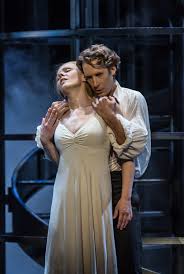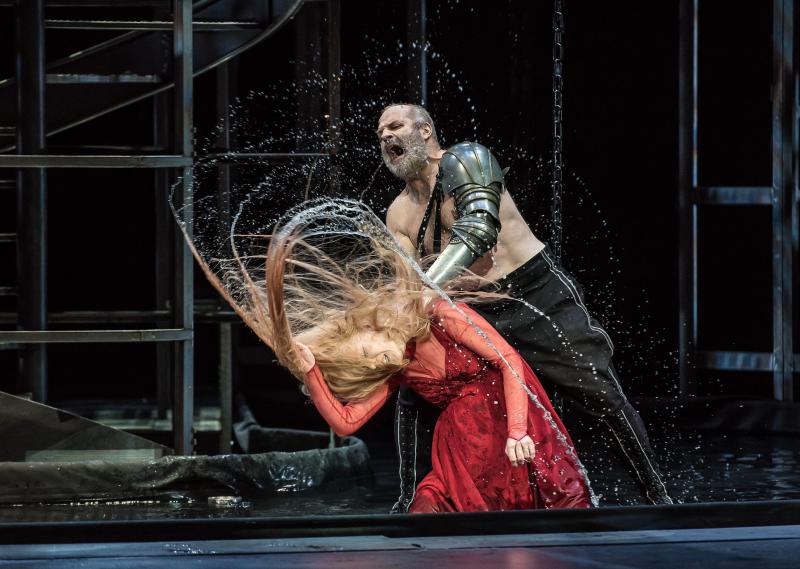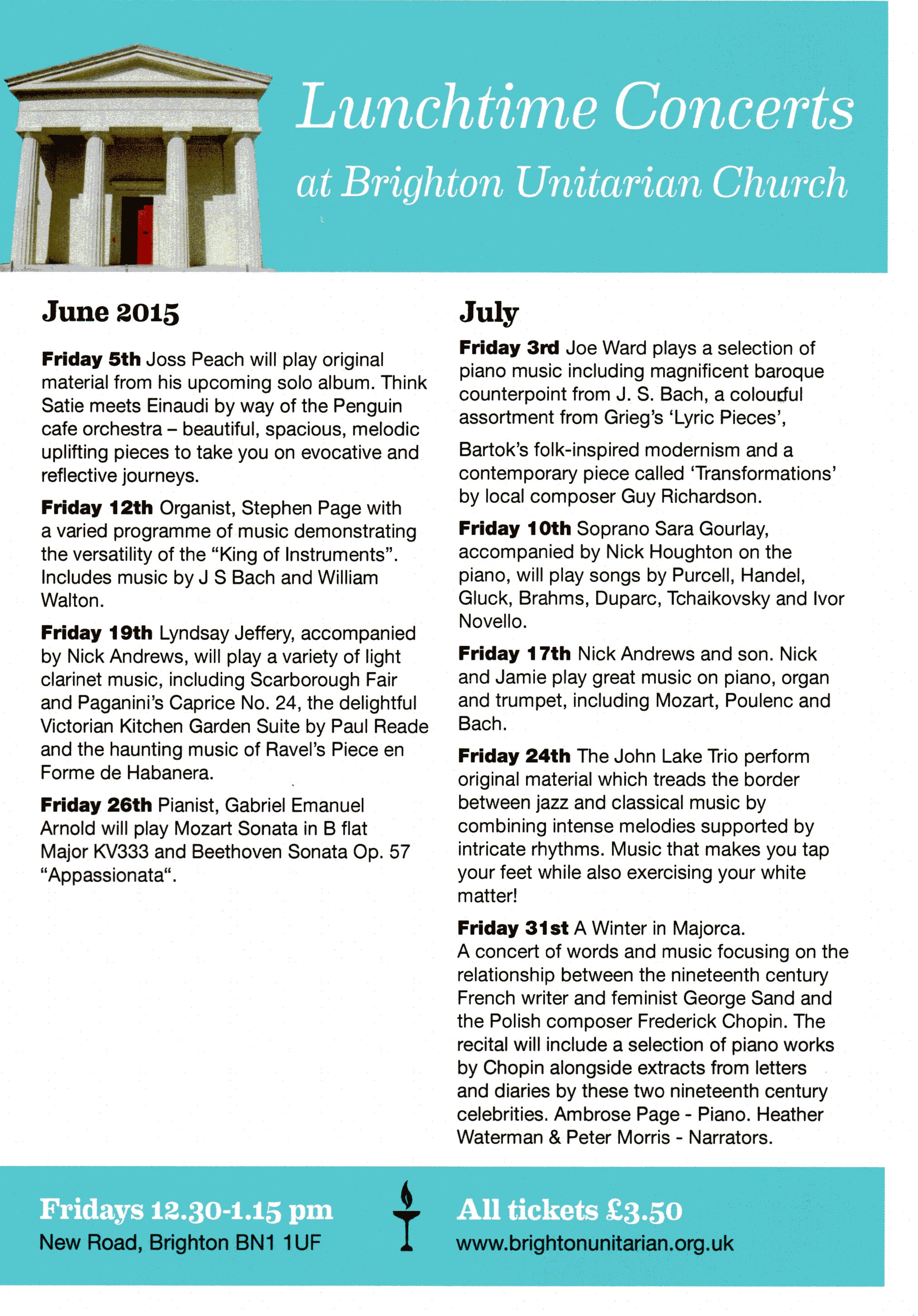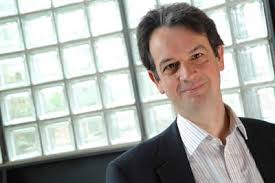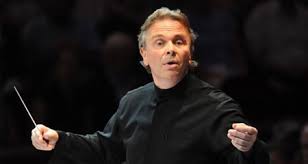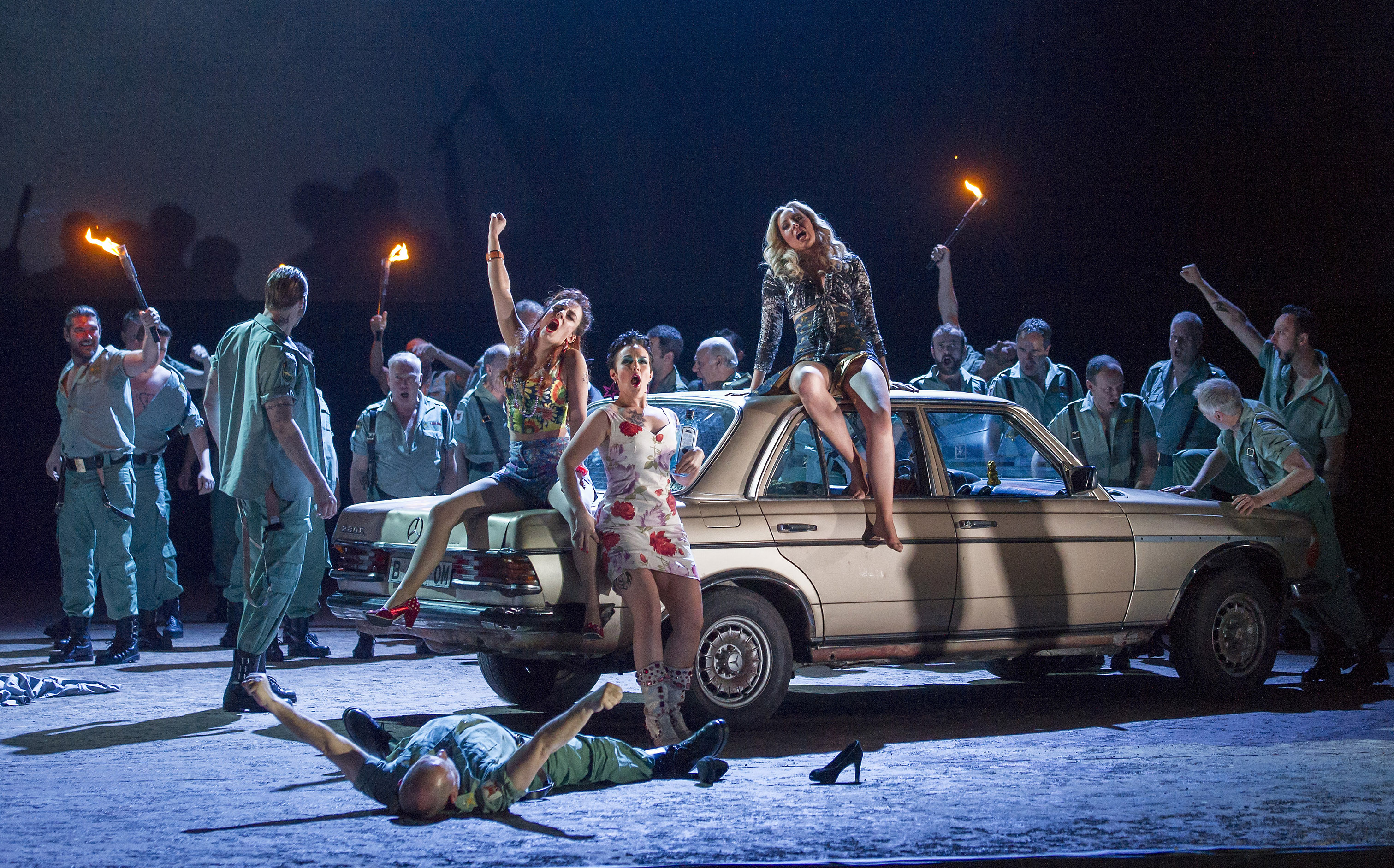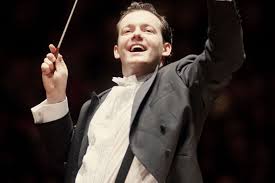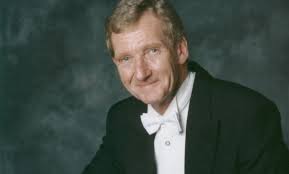Millenium Centre, Cardiff, 29 May 2015
David Pountney seems to be back to his old form with this troubling and often enigmatic production of Debussy’s Pelleas et Melisande. If a first sight of the set, with its vast metal cage and hanging skeleton, is momentarily off-putting then the arrival of the protagonists puts one immediately at ease. Keeping closely to a world of fantasy, where the unusual remains unexplained, is a real strength throughout the evening. Melisande emerges, chrysalis like, to be discovered by Golaud, and the unfolding narrative makes no attempt to explain why things happen – they simply do as part of the cycle of life. The final scene, when both Melisande and the baby disappear gently before our eyes and we are returned to the opening state, a hand emerging from the chrysalis like a flower coming gently into bud, is the most optimistic reading of this work I can recall.
Along the way there are many telling moments. Water, so heavily noted in the text, is ever present and the singers spend much time moving through it or into it. Golaud’s vicious attack on Melisande seems all the more unsettling for the way in which she is drenched by its conclusion. There are also frequent moments of telling insight. The parallels with Parsifal are there as the wounded Golaud/Amfortas is brought water by Melisande/Kundry. It emphasises the sense that Melisande is an unknown quantity with a whole history which we can never really comprehend. Rather than exiting and keeping Je ne sais pas heureux to herself, she says it directly, and almost naively to Golaud. When she insists Pelleas tell the truth, she looks at her ring finger.
Throughout Jurgita Adamontye is an enigmatic Melisande without ever being waif-like. Her very physical presence makes her all the more enigmatic. Her Pelleas, Jacques Imbrailo, is by contrast almost impossibly naïve at the start – a little boy who is at odds with the complex relationships of an adult world. He grows visibly as the story unfolds and is only just at the point of maturity when he is killed. It is a wonderful piece of characterisation and completely convincing.
Christopher Purves is a troubled Golaud, his passion often at odds with his authority until it breaks through and destroys everything he loves. The scene with Yniold – a touching Rebecca Bottone – is masterly as Golaud tries to force his son to admit to things which probably did not happen but which are anyway beyond the boy’s understanding.
Leah-Marian Jones as Genevieve and Scott Wilde as Arkel create a secure framework within which events are allowed to unfold, their presence at the end marking the continuity from one generation to another even in the face of death.
Johan Engels metal cage works surprisingly well and is superbly lit by Mark Jonathan, allowing the day light to creep in at the right moments but never overtake the darkness – even when the stars are out. In the pit Lothar Koenigs provides a subtle and luminous account of the score and one which I would be very happy to encounter again.
After a few less than convincing evenings this is WNO at its best again.
Photos WNO Clive Barda

